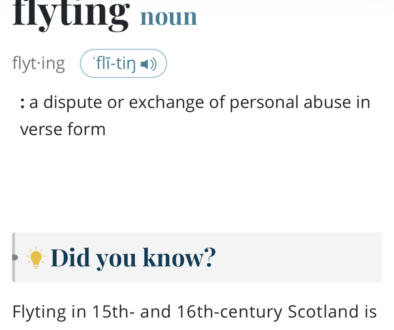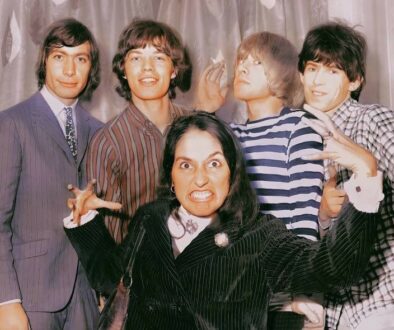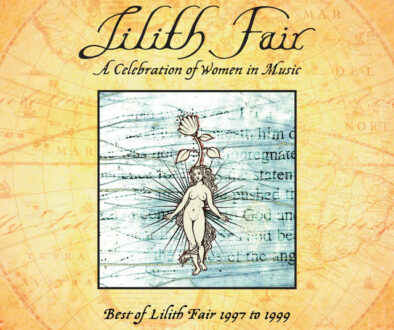iCompton: Dre as Apple Product
 August 7th, 2015 will presumably not join January 24th, 1984 and October 23, 2001 on the list of celebrated Apple anniversaries. This will, I suspect, be a mistake. The release of Compton (all together now, “Dr. Dre’s first new album in sixteen years”) is every bit as significant a cultural moment as the Macintosh and the iPod, even if its status as a pop moment is likely to obscure its status as a moment in the history of tech culture, and, more broadly, the way it positions Dre as the king of both Compton and Cupertino, for good and for ill.
August 7th, 2015 will presumably not join January 24th, 1984 and October 23, 2001 on the list of celebrated Apple anniversaries. This will, I suspect, be a mistake. The release of Compton (all together now, “Dr. Dre’s first new album in sixteen years”) is every bit as significant a cultural moment as the Macintosh and the iPod, even if its status as a pop moment is likely to obscure its status as a moment in the history of tech culture, and, more broadly, the way it positions Dre as the king of both Compton and Cupertino, for good and for ill.
The album is, after all, an Apple product, even if it says Aftermath/Interscope on the label. Because, of course, there wasn’t a physical label when the album was released: it was an Apple Music/iTunes Store exclusive. This is part and parcel of Dr. Dre’s newfound status as Apple executive, as was the album’s announcement, just a week before its release, on Dre’s Beats One show.
The theatricality of that move is not the only thing borrowed from Steve Jobs. Dre is working in the same role of renowned visionary overseer that Jobs occupied in his later years. Dre’s albums have always been intensely collaborative affairs, but on Compton he is less the lead artist than the CEO, serving as the drummer for decades of hip hop talent, from Ice Cube to Kendrick Lamar, to march to. Beats by Dre, if you will.
In this regard too, Dre is following in Jobs’s footsteps, with Apple’s 2014 acquisition of Beats by Dre being made in the model of its 1997 acquisition of NeXT. In 1997 they sought both to use NeXTSTEP to make up for years of stalled and inadequate modernisation of MacOS and to (re)acquire the services of Steve Jobs. In 2014, the platform past due for modernization was the iTunes Store, the acquired technology was the Beats Music service, and the executive talent was Dre.
Central to this process is the fact that Dre functions as a luxury brand. That’s the whole point of Apple Music itself, which, for all its interface foibles, still has the sense of quality design one expects from Apple, carefully chosen and immaculately kerned typefaces over lush stock photos all combining to scream “we’re classier than Spotify” as loudly as possible. But this sense of design is just as visible in Compton. A Dre album has always demanded that it be listened with an ear trained on the quality and innovation of the production. It has to be a smash hit also, but its true audience is the engaged connoisseur. With its collage of 70s funk and analogue synths, 1992’s The Chronic hinted to listeners that hip-hop’s most formidable power wasn’t revolutionary rhetoric or gun love, but a particular poise of laid-back confidence; seven years later, 2001 was a victory lap featuring the era’s top names paying Dre tribute, demonstrating the immeasurable material payoff of his approach
Or, to put it in terms of the tech buzzword du jour, Dre has always been curatorial, presenting new sounds and artists to the world so as to carefully cultivate an image as the ultimate in tastemakers. It’s telling that the abandoned Detox lived (or failed to) in the period between his launching of Eminem, whose emergence coincided with 2001, and the imperial phase of Kendrick Lamar, which is to say, the period where Dre lacked a brilliant protege. And Lamar’s three appearances on Compton are all overt standouts, showcasing him at his most technically audacious, standing out even within what has, to say the least, been a hell of a year for him.
Lamar, however, is just the crown jewel of this career retrospective. Indeed, “Darkside/Gone” even has him share the track with a beyond-the-grave Eazy-E, a move that emphasizes the genuine sweep of Dre’s career. And most of the highlights of that career are represented here, with Ice Cube, Snoop Dogg, and Eminem all turning up for obligatory performances. One of the album’s most revealing moments comes in the latter of these, as the dizzyingly paranoid crescendo of Eminem’s verse fizzles into banal rape braggadocio. It’s tempting to call it unnecessary, but that seems a strange word for something so keeping in the style of both Eminem and Dr. Dre’s past work. Indeed, it borders on being an exercise in ticking off boxes.
Crucially, this sense of curation isn’t just biopic-inspired nostalgia on Dre’s part: it’s at the heart of Apple Music’s sales pitch. It’s the promise of the self-consciously broad reaching Beats One radio – a constantly and meticulously selected representation of the immediate moment in pop music, its quality warranted by Apple’s reputation (at least among its post-yuppie base) for impeccable taste. And Compton befits the brand, showing off a sonic palate that jumps from invocations of vintage g-funk beats to sampling Turkish psychedelia, with more focus on showing off the breadth of Dre’s magpie museum than on smooth transitions; at times it can’t go more than thirty seconds without overtly repositioning itself.
This proves a good fit for 2015; certainly it suits Kendrick Lamar, but Eminem and Snoop Dogg are also flattered by the flood of sounds and concepts rushing around them. And the album takes pains to situate itself in the present, with things like the resolution of “Deep Water” – a man drowning over a throbbing and indifferent saxophone line, his last words a desperate quotation of Eric Garner that give way to forty-five seconds of gulls and slowly deflating sax. The album regularly makes such efforts to reiterate its social consciousness. Its opening track features a voiceover from an old news segment proclaiming how Compton was the black American dream turned sour, and even Eminem muses thoughtfully about the systemic nature of white privilege.
It’s got the unmistakable sound, in other words, of a man who’s decided he wants to change the world instead of selling headphones. But then, as Dre reminds us throughout Compton, he’s already sold an awful lot of them; his first actual line on the record is the declaration that he’s just bought California, shortly before bragging that he’s still not opened all his Eminem checks. Dre has always been one of the pioneers of the hip-hop success narrative; 2001 was awash with boasts about his opulence. In many ways, this is why Dre is the hip-hop mogul to make the jump to billionaire tech executive. His braggadocio has always been rooted in the inviolate logic of capitalist spectacle whereby you can’t argue if it sells millions; the same logic that underlies the myth of Apple’s design genius.
But the whiff of cynicism doesn’t come close to invalidating the underlying accomplishment. Not only has Dre taken the role of “the black Steve Jobs,” he’s done it while keeping the emphasis firmly on the black part of that, ensuring that his myth is as rooted in black culture as Jobs’s was in 60s psychedelia and utopianism. The album never lets you forget that Dre’s ascent is a story of black America, constantly returning focus back to the systemic racism at the heart of Compton’s problems, most obviously in “Animals,” where the hook opens with Anderson Paak pleading “don’t come around these parts and tell me that we’re all a bunch of animals.” In this regard too, it’s well-suited to its time, embodying the post-Obama turn in civil rights away from mere equality and towards acknowledging the singular importance of black perspectives.
For all its dangers and problems, though, Compton is, as always, an object of celebration. Its role in the story is not that of dystopian urban hell, but as the crucible out of which Dre’s genius is forged. In this regard, it’s impossible to think of Compton as entirely separate from Mavericks, whose famously dangerous waves and obvious utility as a symbol for Apple’s brand of creative vision started the tradition of naming Apple products after California locations in which Compton follows.
This ends up pointing towards the problem with repackaging Dre as a latter day Steve Jobs. Dre’s social conscience has always been selective, as willing to lay down a beating on Dee Barnes as he is on a racist cop. But as schizoid as it is to have an album that’s simultaneously evoking Black Lives Matter and presenting a comedy sketch about shooting a woman and burying her body, there’s something truly baffling about Dre rapping about how he was “just a young black man from Compton wondering who could save us and could barely read the sentences the justice system gave us” on one track, and then on another proclaiming that “anybody complaining about their circumstances lost me.”
It’s not just that Dre has acquired the conservatism that middle-aged self-made men do. Sure, at various points on Compton he’s heard complaining that girls act older than they should, kids spend too much time on the Internet, and music these days all sounds plastic, but you can hardly begrudge him the right to tell the kids to get off his lawn. (Actually, he probably has security for that.) The problem is that the myth of Dre as singular visionary genius means that his narrative is necessarily unrepeatable. The dangerous waters of Compton may have spawned Dre, but they can’t possibly do so again. Which makes a track like “All in a Day’s Work,” which opens with fellow Apple mogul Jimmy Iovine talking about fear as a motivational force and closes with Dre admonishing the world that “if you really wanna do it like this, shit you better get back to work” more than slightly tone deaf.
But nowhere are the contradictions implicit in Compton more visible than its final track, “Talkin to my Diary.” For all that the title and its status as the one solo Dre track on the album implies a level of intimacy and confession, we never get access to the diary – “no ink in the pen, no lines on the paper,” as the chorus has it. Instead, the talking is an internal process, done while staring at the sky. Dre remains a wholly absent figure, a fact emphasized by the fact that after the end of the second chorus, nearly two minutes from the track’s end, Dre simply disappears, replaced by a trumpet bridge that simply fades out with the track and album. We see the shape of him, an eternally recognizable silhouette cast over a sonic hue at once striking and sparse. The sound is unquestionably that of a hip hop icon. But the design is that of an Apple icon.





October 7, 2015 @ 4:58 am
As I was reading this earlier today Drake’s “Hotline Bling” came on the local top 40 radio station, and that strikes me as a similarly pivotal moment – first played alongside a bevy of other new songs on his Beats One show (including one of the opening volleys in the whole Meek Mill affair, itself a publicity victory basically won by default based on the goodwill of previous publicity victories), then disseminated through streaming services and essentially selected by the internet for chart ascendancy. If you go on the iTunes store right now it’s there on his page in a section titled “New Music” along with all the other Beats One-premiered tracks and an “Exclusive Mixtape Mastered For iTunes” with Future. It’s #1 in their singles listings and #3 on Billboard, where its run is likely just beginning. And it’s a genuinely good song, or at least conforms to the basic online standards of one – Best New Track on Pitchfork, tasteful sample whose identification was a story unto itself, easily and frequently covered by both big-name acts and amateurs. Apart from a slight hiccup in which Apple Music’s twitter feed misidentified it as a remix of a song Drake was apparently considering remixing, it was an immaculate rollout that gave the song an air of impregnability – irresistibility – that’s a surefire route to an abiding hit if you’ve got the resources to achieve it (ie, basically pull off every single victory I’ve described so far). Ordinarily we’d see this happen with a great deal of deliberation – a lead-up campaign assuring us of the single’s importance, something to get fans counting down (or, in the case of something like Justin Bieber’s “What Do You Mean”, a literal, authorized, day-by-day video countdown), maybe an awards show performance if the schedules line up. Then a big, effervescent burst on release day – the simultaneous release of a video, contests you can only participate in by Shazaming the song, maybe some additional shenanigans more directly connected with the nature of the release. Telegraphed far in advance, unavoidable before it even hits… and hopefully not, despite everyone’s best efforts, exhausting before it even hits (see Britney and Iggy Azalea’s “Pretty Girls”). Getting to the point where this works for a song is a long, elaborate, only somewhat reliable process. With “Hotline Bling” it seemed to be a casual side effect of Apple Music’s general efficiency. Within their overwhelming stream of immaculate content, a song just sort of “popped” into existence of sufficient catchiness and from a big enough name to become a pop hit, and listeners behaved as if it was only natural for them to make it one. It’s not that Drake sidestepped the “machine” in any sense. It’s just that he decided to make this run of between-album tracks a cog in the one that Apple’s running, and they’ve made a far more efficient use of it than it would have found elsewhere.
And importantly, “Hotline Bling” is indeed only a small part of the deluge that Apple Music has made an initiative to create. Compton had similar origins, of course, though that was obviously earmarked for the success it achieved from early on; more broadly, they’ve set out to “curate” a wide variety of acts who are similarly difficult to argue against. Based on the Pitchfork headlines I read it’s easier to assume an artist you see on there has a Beats One show than not; indeed, the sphere of inviolability they’re generating has an obvious precedent in Pitchfork’s carefully managed (but always, at any given time, too imperceptibly broad to get a handle on) list of “approved” acts. It’s easy to imagine this vision taken to some dizzily utopian (from Apple’s perspective, anyway) endpoint – all of music essentially under the purview of Apple, every artist free to indulge their whims to the delight of a supportive public. As it stands now, though, they’ve got their first hit single, a counterpart to their first #1 album with Dre. It remains to be seen whether it can carry that momentum to less likely victories, but entertaining the though gives me a similar mixture of wonder and apprehension as the piece up above – there’s a undeniable sense that this, in some sense, works better that what’s come before, but to what end? Who will and won’t be invited to the celebration Apple’s throwing? It’s remains unclear – quite unlike “Hotline Bling”, where it’s quite clear that Drake’s stuck in a luxurious outside, alone with an instrumental that sounds uncannily like the Wii Shop Channel music.
May 21, 2016 @ 11:45 am
Apple gives the retards something simple to utilize. Mac dumbs PCs down so that individuals who don’t know anything about PCs can like themselves for owning one. Despite the fact that they pay more for Apple over Windows for a second rate machine. Apple has never had a unique thought. They began with PC (which everybody was making once upon a time) and proceeded onward to rip off the mp3 player with an iPod. After 5 billion distinctive nano or some other poop iPods they choose to rip off the tablet thought presented my Microsoft in 2002 and discharge the ipad which everybody climaxes over and craps their jeans.